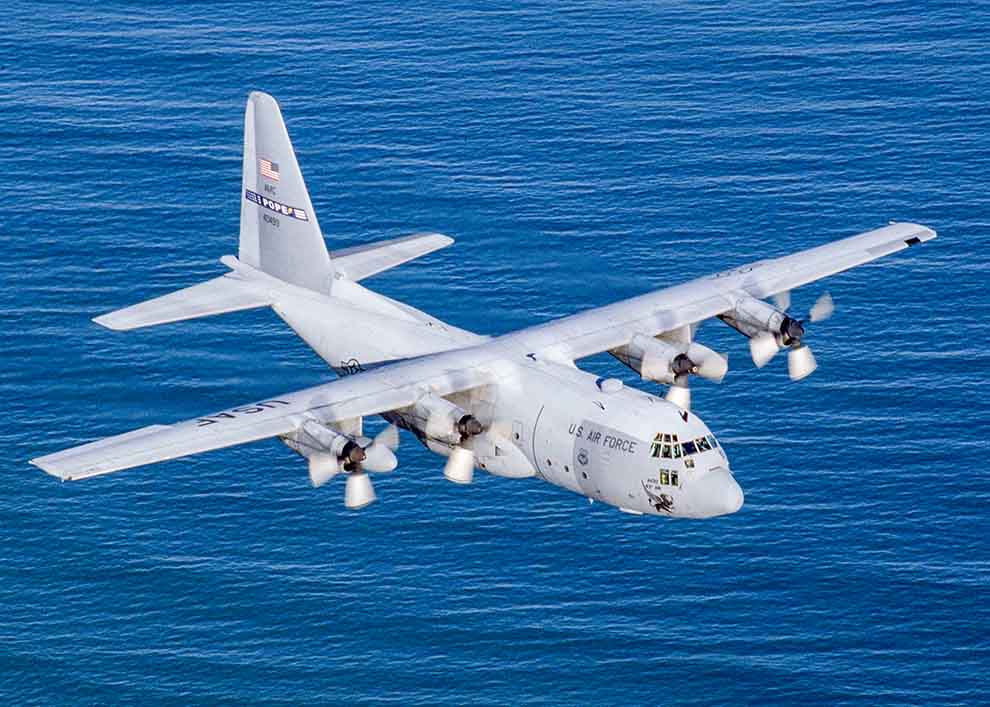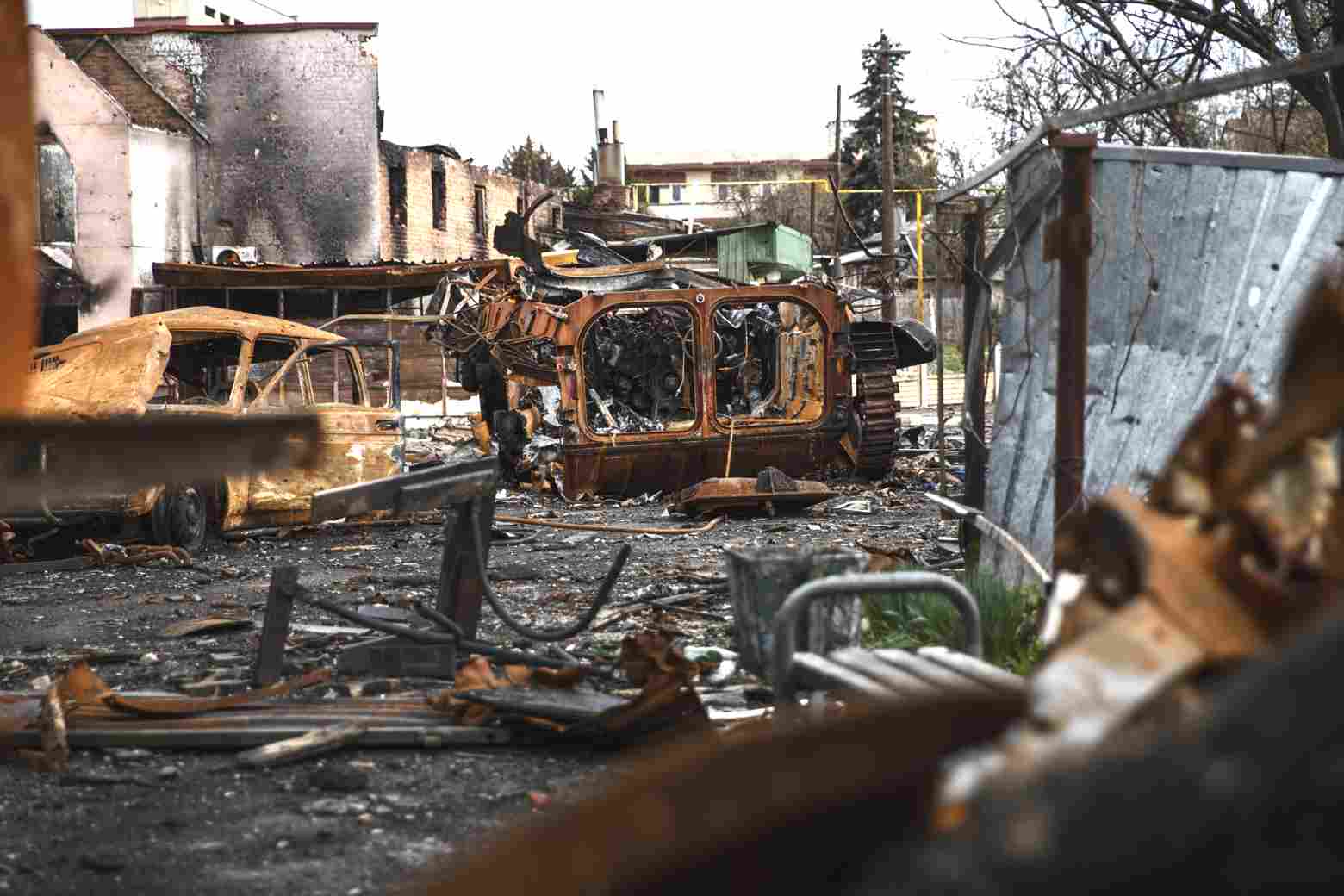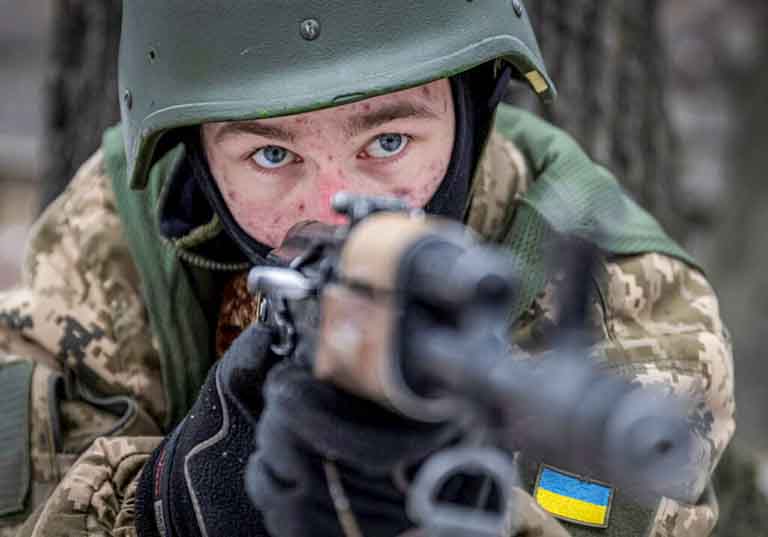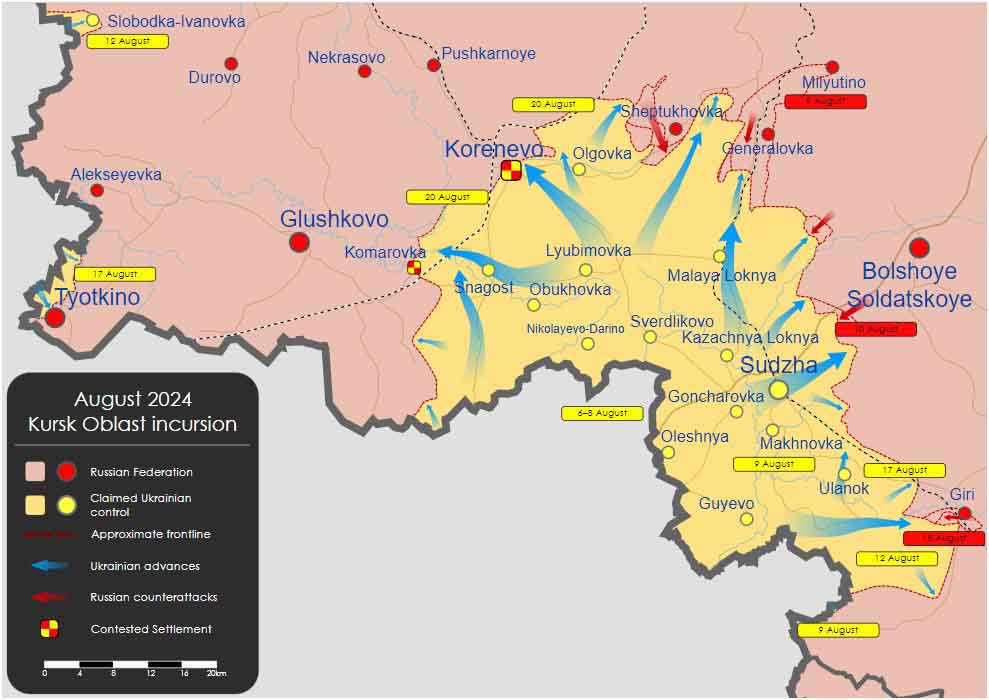Here is a continuation of the article on the situation in Ukraine. The first part can be read here.
In the first part of this article, we wrote about how the Ukrainian-Russian conflict, although initially met with strong support from the West, is now gradually causing war fatigue, prompting reflection on the costs and chances for peace.
Western leaders, including President Biden, were striving to maintain alliances, but with Russia’s growing cooperation with countries like China and Iran, the conflict is escalating globally. Sanctions on Russia are affecting the economies of both sides, and the search for alternative sources of raw materials is driving up prices. Despite efforts to stabilize Ukraine, concerns about further civilian suffering and geopolitical consequences require thoughtful decisions in NATO’s support and defense policies.
Costs and Risks of Extended Assistance
Critics say long-term aid is both economically and politically impossible. Without a concrete and imminent end, Western countries risk “war fatigue” as they redirect resources outward, away from domestic needs. Public sentiment in some European countries reflects growing unease, with support for parties that advocate neutrality or limiting aid to Ukraine growing.
Since the invasion, U.S. aid to Ukraine has reached an unprecedented level of $175 billion in five packages. Of that amount, $106 billion supports Ukraine directly, financing military and humanitarian needs, while the rest, among other things, helps neighboring regions affected by the war.
Evolving Military Aid and Strategic Constraints
Military aid gave Ukraine an advanced defense system, including American F-16 fighters and precision missiles.
Despite these commitments, NATO allies are proceeding cautiously, mindful of the potential for escalation. Restrictions on Ukraine’s use of U.S.-supplied weapons within Russia’s borders reflect this caution, although a recent transfer of long-range munitions suggests a potential shift in policy toward more intensive support.
The war in Ukraine has caused a sharp increase in demand for arms production, which has strengthened the defense industry in the US and Europe. In response to the growing orders, Western countries have accelerated the production of ammunition, armored vehicles and defense systems. This has resulted in more jobs and accelerated technological development in the defense sector.
In the longer term, the continuation of the conflict could force further investment in the arms industry, which also raises concerns about over-armament and the escalation of the global arms race.
The role of Poland and other countries neighboring Ukraine Poland and the Baltic countries played a key role in providing humanitarian aid, as well as providing access to strategic resources for Ukraine. Poland, as Ukraine's closest neighbor, also became the main transit country for supplies of weapons and humanitarian support. Without Poland's support, there would be no free Ukraine.
Poland has played a key role since the beginning of the conflict, becoming one of Ukraine's most important allies in the international arena. Geographical proximity and historical ties meant that Poland immediately became involved in humanitarian and military aid for Ukraine, becoming a transit point for supplies of military equipment, ammunition, medical and humanitarian aid. It is through Poland that most of the support sent by NATO countries passes, making it a strategic partner in providing Ukraine with the resources necessary for its defense.
Poland also accepted the largest number of war refugees from Ukraine, providing them with access to education, health care and the labor market. As part of this effort, Poland gained recognition as a solidary and open country, ready to support its neighbors even at the cost of significant expenditures from the state budget. These actions strengthened Poland's international image as a country committed to helping and ready to make decisions supporting stability in the region.
Poland also plays a significant role in European diplomacy, actively lobbying for tougher sanctions against Russia and mobilising broader military aid for Ukraine.
Poland, together with the Baltic countries, is one of the main advocates of a tough policy towards Russia, calling for continued support for Ukraine and for adopting an uncompromising position on the issue of Ukraine's territorial integrity. Our country has also become a leader in initiatives aimed at reducing dependence on Russian energy resources, which is of great importance for Europe's energy security.
Thanks to its involvement, Poland is not only strengthening its relations with Western European countries, but also strengthening its position in NATO as a reliable and active ally. As a result, Poland has increased its defense spending, modernizing its army and preparing for potential threats from Russia, making it one of the most important NATO members on the eastern flank of the alliance. Poland's actions therefore go beyond supporting Ukraine - they are strengthening the security of the region and shifting the geopolitical importance of Central and Eastern Europe, changing its role from the periphery to a strategic area for the security of the entire continent.
Poland also aims to draw the attention of other EU countries to threats from Russia, seeking to expand the European Union's defense and integration policy. Its position on Ukraine has influenced the change of attitude of many European countries, which were initially more reserved towards the conflict. Thanks to intensive dialogue with partners in the EU and NATO, Poland has strengthened itself as a key player in the European arena, actively shaping security policy and supporting Ukraine's democratic aspirations towards integration with the West.
Global Security at a Critical Moment
The stakes of the conflict in Ukraine extend far beyond the region, challenging the rules of the global international order and potentially changing global alliances. Western leaders face a delicate balance: protecting Ukrainian sovereignty, stabilizing Europe, and maintaining territorial integrity and the rule of law. As winter approaches, the choices made by Western powers will shape Europe's future.
Negotiations at the moment are not implementing a plan for victory or peace for Ukraine; they are merely postponing the problem until later, to face another conflict in a few years, when Russia regroups.
Weighing the Cost of a Quick Room
Calls for a quick end to the war reflect understandable concerns, but Ukrainians, faced with existential threats, are choosing survival over a hasty peace. Some fear that concessions could only embolden Russia, provoking future conflicts. For Ukraine, capitulation could mean subjugation and suffering, something that has historical precedents and is vividly demonstrated by the brutality of past Russian and Soviet rule.
A premature peace risks giving Russia time to regroup, hold strategic territory and assert dominance in the Black Sea, undermining European security.
US support for Ukraine, despite the costs, has significantly weakened long-time adversary Russia, whose strategic goals have been disrupted and whose influence has been limited. However, maintaining this "bastion of democracy" requires fortitude and a strong military-industrial base to support future conflicts.
Understanding the Broader Conflict
The Ukrainian war is more than a local conflict – it is a front in a multi-sided struggle against the anti-Western axis of Russia, China, North Korea, and Iran against US hegemony. Their shared interest in weakening Western alliances should signal to the US how important continued support for Ukraine is. For Russia, Ukraine is a test of US resolve; for China, it is a precursor to Taiwan; for North Korea, it is a potential testing ground; and for Iran, it is a blow to Western influence in the Middle East.
While some Americans fear so-called “forever wars,” the fight in Ukraine is fundamentally different from the conventional conflicts the United States typically engages in. Ukrainians, not American soldiers, are on the front lines, determined to reclaim their territory despite the high cost.
The West's hesitation in this conflict could lead to even greater costs in the future as Russia, China and Iran are certain to become bolder.
China, while not officially directly involved in the conflict, remains a significant ally of Russia, supporting its economy through increased purchases of Russian raw materials and offering covert technological and logistical support. For Beijing, the situation in Ukraine provides a testing ground for observing Western reactions to Moscow’s actions, which may be important for China’s future actions towards Taiwan. Growing Sino-Russian relations strengthen both countries’ positions in the international arena, while also challenging US and NATO strategies in the Indo-Pacific region.
Some foreign policy analysts see this as a reason to argue for less support and more restraint, since the Defense Department should literally be saving its ammunition for a possible conflict with China.
Public Diplomacy and the Role of the Media
It is worth noting that in times of conflict, the media play a key role in shaping public opinion and influencing political attitudes towards support for Ukraine.
Media in Europe and the US are reporting on the war daily, mobilizing public opinion to support actions on behalf of Ukraine. At the same time, disinformation and propaganda, especially on social media, are used by Russia to destabilize the situation and discourage Western societies from further involvement.
Public diplomacy is therefore becoming an essential element of information warfare and building support for Ukraine.
The conflict in Ukraine has highlighted the risk of hybrid conflicts, including cyberattacks, disinformation, and asymmetric operations, which Russia uses to weaken its adversary.
Cyberwar has become a key element of Russian strategy, and attacks on Ukraine's critical infrastructure, as well as attempts to interfere in the systems of other European countries, have become the norm. The growing cyber threat is causing Western countries to invest in cyber protection and the development of defensive strategies in the field of information technologies.
Enhanced Support is a Strategic Imperative
Support for Ukraine remains essential to maintaining a U.S.-led world order. While current spending is high, the cost of allowing Russia to expand its influence would be much greater. Peace at Ukraine's expense is merely a stopgap that will likely lead to renewed aggression and will solve nothing in the long run.
To ensure lasting peace, the United States and its allies must provide Ukraine with the weapons it needs to reclaim its land, as well as the freedom to strike Russian targets, and step up enforcement of tougher sanctions against Moscow and its allies.
While providing Ukraine with the means to defend itself may be costly at present, it is a small price to pay compared to the potential devastation an emboldened Russia would inflict on the Western world if it were allowed to expand unchecked and freely. And Russia is not alone in this.











